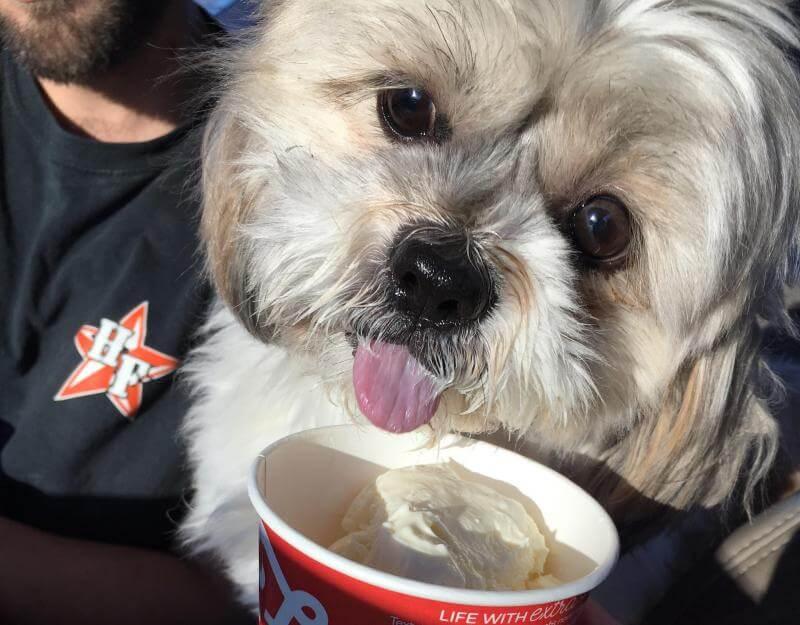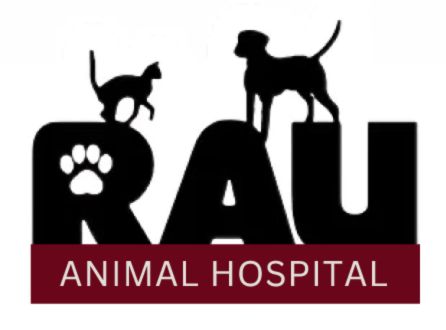
The Key To Canine Nutrition
The dietary components that represent the fundamental keys to canine nutrition are proteins, fats, carbohydrates, vitamins, and minerals. The combinations and amounts of these components are based entirely on a dog's age, weight, physical and/or medical condition, and lifestyle. This is why there are many kinds of dog food for each phase of your canine companion's life.
At Rau Animal Hospital, we have spent decades educating pet owners about proper dog nutrition for dogs of all ages, breeds, conditions, and lifestyles. Because canine nutrition ultimately plays a large part in the quality of your dog's life, we want to share some veterinary insight with you about proper dog nutrition, whether you are looking for puppy food recommendations, or adult and senior dog nutrition advice.
What Is The Best Dog Food For A Dog?
Each dog is unique and therefore there is no one dog food that works for all dogs. In general, feeding a premium brand is a safe bet for all dogs. They have many choices of proteins and types of diets (canned, dry).
Puppy food is specifically formulated with nutrition for dogs that are still growing into adulthood in mind. Puppies need about twice as many calories per pound of body weight as adult dogs of the same breed. Puppy breeds vary tremendously in size, rate of growth, tendencies to overeat, etc. There are so many variables in making the correct choices when it comes to the nutritional and caloric needs of puppies that we highly recommend seeking the advice of one of our veterinarians before purchasing food.
For adult dogs, select food that is specifically balanced to deliver the caloric and nutritional requirements essential for health, happiness, and wellness. It is also important at this stage in a dog's life to make sure to use portion control. Choosing a balanced and nutritious adult dog food, and implementing responsible feeding protocols, decreases adverse health effects caused by poor nutrition or over-consumption.
There are times when supplements are helpful for senior dogs. Again this may be very specific for your dog's needs. It is always best to be honest and share with your veterinarian the supplements that you are giving or would like to give.
Dog Food Recommendations For Overweight Dogs
Unfortunately, obesity has become a common problem with dogs. Just like humans, being overweight can be detrimental to a dog's health. An overweight dog has many added stresses upon his or her body and therefore is at an increased risk of diabetes, arthritis, joint pain, exercise intolerance, and low energy.
Obesity occurs when energy intake (or food) exceeds energy requirements (or the amount of calories burned through activity and exercise). The excess energy is stored as fat, and accumulated fat causes obesity. The majority of dog obesity cases are related to simple overfeeding coupled with a lack of exercise. The best way to curb and reverse obesity is to correct our dog's diet, increase exercise, and modify feeding habits.
Table Scraps And Human Food
We know that most people like to feed their dogs some of their food. If you are like most people and want to add some whole fresh food to your dog's diet, we recommend that you add one ingredient at a time to see if there are any digestibility or intolerances.
Adding some freshly cooked vegetables and some healthy low-fat protein to your dog's kibble can be a very healthy addition. Cooked broccoli and green beans are generally well tolerated by most dogs. Chicken, fish, and lean pork or beef can also be added in small amounts to your dog's food. Adding in some other protein sources is only ok in dogs who are not allergic. Always review your diet plan with your veterinarian In general, feeding a high-quality kibble and adding some whole food can be a very healthy diet for your dog. We generally recommend that you keep the amounts to 20-25% addition of table food to 80% dog food.
Some of you may have more time and want to cook entirely for your dog. This is a perfectly healthy option as long as the diet is well-balanced. We can work with a veterinary nutritionist to help formulate a home-cooked diet using the ingredients you like to keep at home.
Learn More About Dog Nutrition
We love helping owners learn and especially love seeing the positive effects of dog nutrition in the bodies and minds of the many furry, four-legged patients we view as our extended family members. If you would like to discuss canine nutrition with our veterinary staff, please contact us to schedule an appointment!
